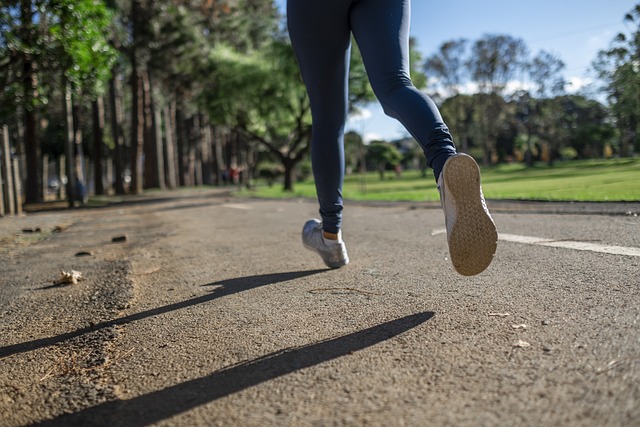Exercise is an essential part of a healthy lifestyle. It not only helps you maintain a healthy weight, but it also has numerous physical and mental benefits. We will explore the many reasons why exercise is good for you and how you can incorporate it into your daily routine.
Benefits of Exercise
Regular exercise has a wide range of benefits for both your body and mind. It can help you maintain a healthy weight, improve your cardiovascular health, and strengthen your muscles and bones. Exercise also has a positive impact on mental health, reducing stress and anxiety, improving mood and self-esteem, and promoting better sleep quality.
Types of Exercise
There are three main types of exercise: aerobic, strength training, and flexibility and balance exercises. Aerobic exercise, also known as cardio, involves activities that increase your heart rate and breathing, such as running, cycling, and swimming. Strength training involves using resistance to build muscle strength and endurance, such as weightlifting and bodyweight exercises. Flexibility and balance exercises, such as yoga and tai chi, help improve your range of motion and prevent falls.
How Much Exercise Do You Need?
The recommended amount of exercise varies depending on age, current fitness level, and health conditions. According to the World Health Organization, adults aged 18-64 should aim for at least 150 minutes of moderate-intensity exercise or 75 minutes of vigorous-intensity exercise per week. It is also recommended to incorporate strength training exercises at least two days a week.
Overcoming Barriers to Exercise
One of the most common barriers to exercise is lack of time. However, even short bursts of physical activity throughout the day can add up and provide health benefits. Lack of motivation and physical limitations can also make it challenging to stick to an exercise routine. To stay motivated, set realistic goals, find an activity you enjoy, and enlist the support of friends and family.
Exercise and Nutrition
Exercise and nutrition go hand in hand when it comes to maintaining a healthy lifestyle. A balanced diet provides the necessary fuel for your body to perform during exercise. It is also essential to fuel your body before and after a workout with a combination of carbohydrates and protein. Staying hydrated is also crucial for optimal performance during exercise.
Exercise and Aging
Regular exercise is especially important for older adults as it can help maintain muscle mass, improve balance and coordination, and reduce the risk of chronic diseases. Low-impact exercises such as walking, swimming, and yoga are recommended for seniors. It is also essential to consult with a doctor before starting a new exercise routine.
Exercise and Mental Health
Exercise has been shown to have a positive impact on mental health, reducing symptoms of depression, anxiety, and stress. It can also be used as a form of therapy for individuals with mental health conditions. Incorporating exercise into a treatment plan can improve mood, self-esteem, and overall well-being.
Exercise and Chronic Diseases
Regular physical activity can help manage and prevent chronic diseases such as heart disease, diabetes, and obesity. It can also improve symptoms and quality of life for individuals living with chronic conditions. It is essential to consult with a doctor before starting an exercise routine, especially if you have a chronic disease.
Exercise and Children
Physical activity is crucial for children’s growth and development. The recommended guidelines for children aged 6-17 are at least 60 minutes of moderate to vigorous physical activity per day. Encouraging children to participate in sports, outdoor activities, and active play can help them develop healthy habits that will benefit them throughout their lives.
Exercise and Pregnancy
Exercise during pregnancy has numerous benefits, including reducing the risk of gestational diabetes, improving mood, and promoting better sleep. It is recommended to consult with a doctor before starting an exercise routine and to modify activities as the pregnancy progresses.
Exercise and the Workplace
Incorporating exercise into the workplace has benefits for both employers and employees. Physical activity can improve productivity, reduce stress and absenteeism, and promote a healthier work environment. Simple changes like taking the stairs instead of the elevator or going for a walk during lunch can make a significant difference.
Exercise and Social Connections
Exercising with others can provide a sense of community and motivation. Group exercise activities such as group fitness classes, team sports, and outdoor activities can be a fun and social way to stay active. Finding a workout buddy or joining a fitness group can also help you stay accountable and motivated.
Exercise and the Environment
Outdoor exercise has numerous benefits, including exposure to fresh air and vitamin D from the sun. It can also be a more enjoyable and challenging workout compared to indoor activities. It is essential to take precautions when exercising in different weather conditions and to be mindful of the impact on the environment.
Exercise is an essential part of a healthy lifestyle. It has numerous physical and mental benefits and can be incorporated into daily life in various ways. Whether it’s through sports, outdoor activities, or simply taking the stairs instead of the elevator, finding ways to stay active can have a significant impact on your overall health and well-being.
FAQs
- How often should I exercise?
The recommended amount of exercise is at least 150 minutes of moderate-intensity exercise or 75 minutes of vigorous-intensity exercise per week. - Can I lose weight just by exercising?
While exercise is an essential component of weight loss, it is also crucial to maintain a balanced diet and create a calorie deficit. - Is it safe to exercise during pregnancy?
It is generally safe to exercise during pregnancy, but it is recommended to consult with a doctor and modify activities as the pregnancy progresses. - Can exercise help with depression?
Exercise has been shown to have a positive impact on mental health, reducing symptoms of depression and improving mood. - What are some fun ways to exercise?
Some fun ways to exercise include dancing, hiking, playing sports, and trying new fitness classes.

